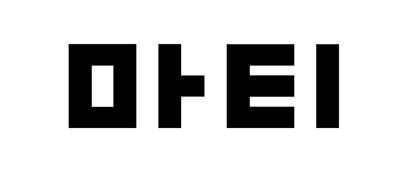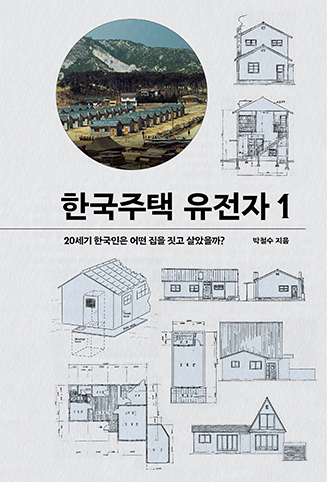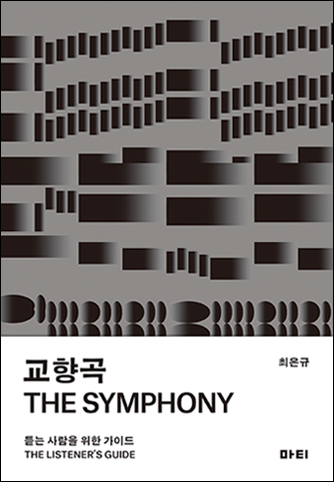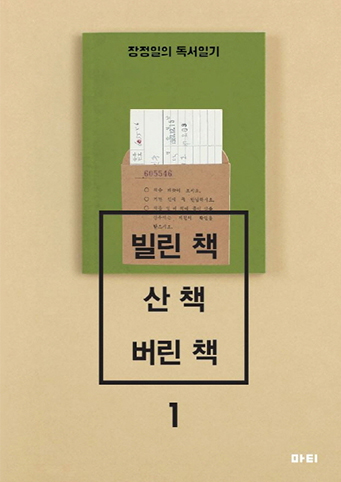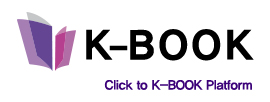|
Korean Publishers
Mati Books New Perspective, Broader Sight
2022.02.14
Mati Books is a publisher specializing in the humanities, publishing books in various fields such as society, art, and architecture. Starting as a single-person publisher, Mati Books has been delivering the importance of humanities books, winning the Lotte Publishing Culture Award and Korean Publishing Culture Award, and being designated as the Sejong Excellent Academic Book. Under the slogan of “Humble Life with Ambitious Thinking,” Mati Books has been touching the hearts of its readers with insightful interpretation, heartwarming encouragement, and deep enlightenment for 17 years. Following is an interview with Mati Books.
Logo of Mati Books

Please introduce Mati Books to our readers.
Mati Books was founded in 2005. We publish books about society, art, and architecture, based on humanities. We have been publishing the Faustian Bargain series, which broadened the scope of understanding about the Third Reich through the lives of artists who cooperated with the Nazis such as Furtwängler, Leni Riefenstahl, and Albert Speer, the Edward W. Said Selections that introduce the intellectual heritage of Edward W. Said such as On the Late Style, and the Good House Series that led the house-building syndrome in Korea in the mid-2000s including The House Building Bible.

Why does Mati Books focus on humanities, among all other genres?
Historically, the very first root of publishing as an action is modern humanities, and it is not an exaggeration to say that it has led to publishing today. Many fields such as society, art, and architecture are closely intertwined, and the link is the humanities. In fact, each of the fields has branched out from this common root of humanities. But, we don’t think that the humanities are at a level where it ecompasses every other genre. Time has long passed. Yet, we still think that if there’s a common foundation for topics for our conversation, it would be the humanities, even should it be a worn-out foundation.

What do you think is the biggest charm of the humanities as a genre, and why do you think we must read such books?
Humanities can also mean a study of human beings. As we want to know and must know human behaviors, history, and life, we have to look into humanities. Sometimes the humanities are the most practical fields. Plus, it’s fun. There’s nothing more interesting than a human being, right?

What are the criteria for good books and good writing that Mati Books seeks to pursue?
It’s like a tautology, but we think good books are those that well exhibit the unique characteristics and strengths of books as a medium. As paper books have their own advantages, we try to produce books that are good at showing such strengths. Also, there might be various yardsticks to judging good writing, but we think that writing (media) should fit the content of the book. Just like Marshall McLuhan said, the medium can also become the content. We prefer accurate writings rather than beautiful ones.

In order to publish the good books and good writings mentioned above, what are the criteria by which Mati Books selects authors and works?
Above all, the writing must be able to stimulate our members’ curiosity. As there are not many products that highly depend on individual preferences, we believe that a good book should be able to capture the minds of its producers first. Then, our interest and curiosity shall extend to our readers. We think whether we would buy the book instantly if another publisher has made the book.

If you were to pick 3 books published by Mati Books, what would they be, and why?
The Genealogy of Modern Korean Houses, The Symphonies, Borrowed, Bought, Discarded
The Genealogy of Modern Korean Houses by Park Cheol-Soo won the Lotte Publishing Culture Award and Korean Publishing Culture Award, also being designated as the Sejong Excellent Academic Book last year. It literally won all the awards an academic book can receive. It’s 1,400 pages long with more than 1,000 drawing plates, but it’s actually quite fun. It tracks down the history of Korean housing, looking at the kinds of houses Koreans have lived in since the colonization period, Korean War, and the miraculous economic growth, and talks about how Korea got to invest everything into apartments.

Mati Books has been issuing a newsletter named Footnotes*. What is the reason for publishing it, and how’s the readers’ response?
As we’ve mentioned earlier, we wanted to make a channel closest to our readers where we share our interests and curiosity with them. We also wanted to put together all our content into one place, unlike using Social Media, where posts are kind of volatile. Feedback from the readers on the free newsletter is all positive. We get good opinions. But, many of them say that it is different from many other publishing-related newsletters. It seems that they take our newsletter as more friendly. Maybe that’s why its open rate is high.
“Amidst the emerging crisis surrounding books and writing,

What kind of publisher does Mati Books pursue to become, and what are your next plans?
We hope the publisher becomes more colorful as we welcome more members. In a time when it is difficult to quickly increase the size of a publishing company, we think it is one of the few ways to keep publishing for a long time.
#Mati Books#Humanities#Sejong Excellent Academic Book#Modernism |
Pre Megazine
-

Yellowpig
VOL.70
2024.05 -

Writer Jung Yeong-Wook
VOL.70
2024.05 -

Jakkajungsin Publishing Co.
VOL.69
2024.04 -

Writer Yun Jung-Eun
VOL.69
2024.04 -

Jumping Books Publishing House
VOL.68
2024.03 -

Writer Kim Hwa-Jin
VOL.68
2024.03 -

Publisher Hyohyung
VOL.67
2024.02 -

Writer Minha
VOL.67
2024.02 -

Almond Publishing
VOL.66
2024.01 -

Writer Kwon Jung-Min
VOL.66
2024.01 -

Hakgojae Publishers
VOL.65
2023.12 -

Writer Kim Hye-Jung
VOL.65
2023.12 -

Eidos Publishing House
VOL.64
2023.11 -

Writer Hwang In-Chan
VOL.64
2023.11 -

Munhakdongne
VOL.63
2023.10 -

Writer Chang Kang-myoung
VOL.63
2023.10 -

Happywell Publishing
VOL.62
2023.09 -

Writer Baik Soulinne
VOL.62
2023.09 -

Dasan Contents Group (Dasan Books)
VOL.61
2023.08 -

Writer Lim Kyoung-Sun
VOL.61
2023.08 -

SpringSunshine Publishing Co.
VOL.60
2023.07 -

Writer Lee Kyung-Hye
VOL.60
2023.07 -

Human Cube
VOL.59
2023.06 -

Doctor Jeong Jae-Seung
VOL.59
2023.06 -

Anonbooks
VOL.58
2023.05 -

Writer Son Bo-Mi
VOL.58
2023.05 -

Namhaebomnal
VOL.57
2023.04 -

Writer Kim Bo-Young
VOL.57
2023.04 -

Hugo Publishing
VOL.56
2023.03 -

Writer Cho Kwang-Hee
VOL.56
2023.03 -

Balgeunmirae Publishing Co.
VOL.55
2023.02 -

Writer Lee Byung-Ryul
VOL.55
2023.02 -

Wisdom House, Inc
VOL.54
2023.01 -

Writer Jeong Jia
VOL.54
2023.01 -

Humanitas
VOL.53
2022.12 -

Writer Kim Yeon-Su
VOL.53
2022.12 -

Songsongbooks
VOL.52
2022.11 -

Writer Eun Hee-Kyung
VOL.52
2022.11 -

Bombom Publishing Co.
VOL.51
2022.10 -

Writer Jiwon Yu
VOL.51
2022.10 -

Hangilsa Publishing Co., Ltd.
VOL.50
2022.09 -

Writer Kim Won-Young
VOL.50
2022.09 -

Moksu Publishing Company
VOL.49
2022.08 -

Writer Yoo Sun-Kyong
VOL.49
2022.08 -

Next Wave
VOL.48
2022.07 -

Writer Park Sang-Young
VOL.48
2022.07 -

A Thousand Hopes
VOL.47
2022.06 -

Writer Bora Chung
VOL.47
2022.06 -

Woongjin ThinkBig
VOL.46
2022.05 -

Dr. Oh Eun-Young
VOL.46
2022.05 -

JECHEOLSO Publishing House
VOL.45
2022.04 -

Writer Jang Ryu-Jin
VOL.45
2022.04 -

Changbi Publishers
VOL.44
2022.03 -

Writer Kim Ho-Yeon
VOL.44
2022.03 -

Mati Books
VOL.43
2022.02 -

Writer Lee Kkoch-Nim
VOL.43
2022.02 -

Picturebook Gongjackso
VOL.42
2022.01 -

Writer Kim Sang-Wook
VOL.42
2022.01 -

Writer So-yeon Park
VOL.42
2022.01 -

Writer Yoo Eun sil
VOL.42
2022.01 -

Kungree Press
VOL.41
2021.12 -

Writer Kim Lily
VOL.41
2021.12 -

Writer Park Yeon-jun
VOL.41
2021.12 -

Writer Yi Hyeon
VOL.41
2021.12 -

A deeper world told through picture books 'Iyagikot Publishing (Story Flower)'
VOL.12
2019.06 -

Author Jeon Min-hee
VOL.12
2019.06 -

Illustrator Kim Hwan-Young
VOL.13
2019.07 -

Travelers sailing through the sea of knowledge - 'Across Publishing Group Inc.'
VOL.13
2019.07 -

Genre Novel Publisher 'Arzak Livres'
VOL.14
2019.08 -

Author Lee Yong-han
VOL.14
2019.08 -

Wookwan Sunim
VOL.15
2019.09 -

East-Asia Publishing
VOL.15
2019.09 -

Author Jo Jung-rae
VOL.16
2019.10 -

EunHaeng NaMu Publishing
VOL.16
2019.10 -

Writer Heo Kyo bum
VOL.40
2021.11 -

Writer Kim So-Young
VOL.40
2021.11 -

Author-illustrator Kim Sang Keun
VOL.40
2021.11 -

ACHIMDAL BOOKS
VOL.40
2021.11 -

Author Kang Gyeong-su
VOL.17
2019.11 -

Moonji Publishing Belongs to the Literary Community
VOL.17
2019.11 -

Author Kim Yun-jeong
VOL.18
2019.12 -

I-Seum
VOL.18
2019.12 -

Kim Cho-Yeop
VOL.19
2020.02 -

Creating a window into the future with books
VOL.19
2020.02 -

Author Serang Chung
VOL.20
2020.03 -

Hey Uhm
VOL.20
2020.03 -

Writer Lim Hong-Tek
VOL.21
2020.04 -

BIR
VOL.21
2020.04 -

Writer Song Mikyoung
VOL.39
2021.10 -

Author-illustrator Kim Dong Su
VOL.39
2021.10 -

Writer Lee Seula
VOL.39
2021.10 -

Tabi Books
VOL.39
2021.10 -

Writer Kim Soo-hyun
VOL.38
2021.09 -

Author-illustrator Lee Myoung Ae
VOL.38
2021.09 -

Writer Hwang Sunmi
VOL.38
2021.09 -

Kidari Publishing Co.
VOL.38
2021.09 -

Writer Sohn Won-Pyung
VOL.22
2020.05 -

Woods of Mind's Books
VOL.22
2020.05 -

Writer Heungeul
VOL.23
2020.06 -

Gloyeon
VOL.23
2020.06 -

Maumsanchaek
VOL.24
2020.07 -

Winners of the 2021 Bologna Ragazzi Award
VOL.37
2021.08 -

Picture book artist Lee Suzy
VOL.37
2021.08 -

Author-illustrator Yi Gee Eun
VOL.37
2021.08 -

Hubble
VOL.37
2021.08 -

Writer Baek Se-Hee
VOL.25
2020.08 -

Bearbooks Inc.
VOL.25
2020.08 -

Author Baek Hee-Na
VOL.26
2020.09 -

Yuksabipyoungsa
VOL.26
2020.09 -

Writer Kang Hwa-Gil
VOL.27
2020.10 -

Kinderland (Bandal)
VOL.27
2020.10 -

Writer Ha wann
VOL.36
2021.07 -

Author-illustrator Myung Soojung
VOL.36
2021.07 -

Writer Jung Yeo-Wool
VOL.36
2021.07 -

Publisher EcoLivres
VOL.36
2021.07 -

Writer Lee Geumi
VOL.28
2020.11 -

Sakyejul
VOL.28
2020.11 -

Writer Kim Keum-Hee
VOL.29
2020.12 -

Geulhangari
VOL.29
2020.12 -

Writer Cheon Seon-Ran
VOL.30
2021.01 -

Hyang Publishing House
VOL.30
2021.01 -

Writer Lee Hee-Young
VOL.31
2021.02 -

Sanzini
VOL.31
2021.02 -

Publisher Prunsoop
VOL.32
2021.03 -

Writer Sim Yun-Kyung
VOL.32
2021.03 -

Hanbit Media
VOL.35
2021.06 -

Hyeonamsa
VOL.33
2021.04 -

Author-illustrator Noh Inkyung
VOL.33
2021.04 -

Writer Cho Won-Jae
VOL.35
2021.06 -

Writer Kim Jung-Mi
VOL.34
2021.05 -

Safehouse Inc.
VOL.34
2021.05


